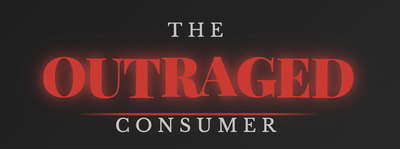Trump's 'simple' tax break for tips is ... well, not so simple
When is a tip not a tip? Maybe when it's electronic?
• Congress delivers on Trump's campaign promise to make tips tax-free, because apparently fixing America's complex tax code needed to get even more complicated.
• The IRS — already hemorrhaging staff and resources — now gets to figure out whether your Venmo tip counts as a "cash tip" while 22% of their customer service workers head for the exits.
• Businesses are already eyeing ways to reclassify more jobs as "tipped positions," because nothing says economic progress like paying workers $2.13 an hour and hoping customers make up the difference.
Well, folks, it's official: America's tipped workers are getting a tax break, and all it took was creating a bureaucratic nightmare that would make Kafka weep.
Congress has successfully passed legislation making tips tax-free up to $25,000, fulfilling one of Donald Trump's splashier campaign promises. The only minor hiccup? Nobody — not the IRS, not employers, not workers — has any clue how this thing is supposed to work.
The law promises to eliminate federal income taxes on tips for workers in "occupations which customarily and regularly receive tips." Sounds straightforward enough. But the devil, as always, is in the details that apparently nobody thought to hammer out before rushing this feel-good legislation through Congress.
What is a tip, anyway?
Take the seemingly simple question of what constitutes a "tip." The law specifically mentions "cash tips," which is charmingly retro considering we're living in 2025, not 1955. But what about tips sent through Venmo, PayPal, or Cash App — you know, the way most people actually pay gratuities these days? Your guess is as good as the IRS's, which is to say, nobody knows.
"There are many unanswered questions about what types of tips will qualify for the tax break, which could lead to confusion for filers come tax season," said Julie Schweber, a senior HR compliance specialist with the Society for Human Resource Management, in what might be the understatement of the decade, quoted recently by the Wall Street Journal. "The bill mentions a cash tip, but that's kind of going by the wayside, with Venmo and PayPal and credit cards and all of that."
Meanwhile, businesses are already doing what businesses do best: looking for creative ways to exploit the system. Experts are warning that employers might try to expand the number of positions classified as "tipped" jobs, because why pay full wages when you can pay $2.13 an hour and let customers subsidize your payroll?
Don’t know? Ask the IRS.
And then there's the IRS, America's favorite punching bag, which now gets to figure out how to implement this legislative gift while facing a staff exodus that would make a sinking ship jealous. About 22% of customer service workers and 27% of technology employees are expected to leave by year's end, because apparently the best time to overhaul tax policy is when the agency responsible for enforcing it is falling apart.
"If there's any significant tax law change — and I'm not talking just about extenders but certain types of income not being taxable — that is going to introduce a tremendous amount of challenge that people need to be thinking about in terms of systems that we need to update," said Doug O'Donnell, former acting IRS Commissioner, in bureaucrat-speak for "we're screwed."
The real kicker? It's up to individual workers to track and report their tips accurately to claim the deduction. So while Congress pats itself on the back for helping the little guy, they've essentially handed millions of service workers the responsibility of navigating a tax law that doesn't exist yet, administered by an agency that's hemorrhaging staff, with guidance that may or may not arrive before tax season.
So there you have it: America's service workers get a tax break that might not work, implemented by an agency that's falling apart, with rules that don't exist yet. But hey, at least it was politically popular. Because in the end, isn't that what really matters? Not whether a policy actually works, but whether it sounds good on a campaign poster.
Welcome to American governance in 2025, where the promises are grand, the details are optional, and the implementation is someone else's problem.



